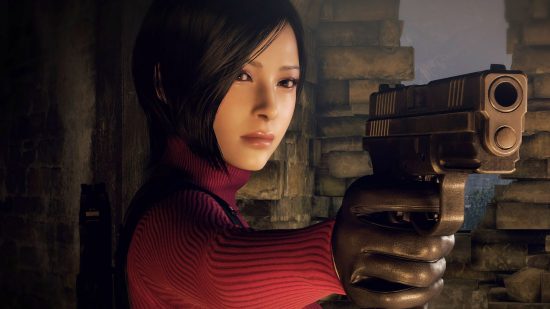Resident Evil, Monster Hunter, and Street Fighter maker Capcom has outlined its stance on modding and how that relates to cheats in a new presentation, saying that these community creations are no different from cheating when it comes to how they negatively impact the game. It’s unclear what this presentation means for the future of mods in Capcom’s games, but it certainly doesn’t sound good.
This comes from the Capcom R&D YouTube channel, as the Resident Evil and Street Fighter developer has outlined its stance on mods and how, in the company’s eyes, the community creations relate to cheating regarding the RE Engine.
While the Resident Evil series is the biggest it’s ever been, there’s no doubt in my mind that the community creations behind the horror games are part of what keeps it alive. So, hearing such a hardline stance on mods is quite surprising.
The presentation from Capcom says “all mods are defined as cheats, except when they are officially supported,” and that “what they are doing internally is no different than cheating.” I can see what Capcom means here from a technical standpoint, as mods can either add entirely new files into a game or change existing ones, which is something that cheats can do, too.

Capcom defines mods as cheats “for the purposes of anti-cheat and anti-piracy,” adding that “mods that are not officially supported by the game, are impossible to distinguish from cheat tools, implementation-wise.”
The company’s stance isn’t also completely black and white though, as Capcom acknowledges in the slides that “the majority of mods can have a positive impact on the game,” but adds that “some mods, however, can be detrimental to the company” in terms of reputational damage and workload.
Capcom is also worried that dubious mods can make its games look bad, and thus the company at large. There’s also discussion of how mods that corrupt the games and their save data can take up the support department’s time, as players contact Capcom for help after a mod they installed corrupts their game.
While I can see where Capcom is coming from here, with the worry being that mods can potentially damage its reputation or divert development costs to helping players who have downloaded mods and seek support after everything goes awry, it does miss the point of mods somewhat.
Capcom acknowledges that some mods can be positive, but at large this feels like a hardline stance that will only be detrimental to the ongoing communities that keep older Resident Evil, Monster Hunter, and Street Fighter games alive. From the presentation, it’s unclear exactly what this means for modding specifically, but Capcom does say towards the end that it wants to implement more countermeasures against unauthorized tools.
The bottom line is that Capcom doesn’t like many mods (which it equates to cheats a lot of the time) because of how they can impact the company’s reputation, disrupt workload flows and budgets, and delay support for other players when players with mods call in for support Capcom cannot give.
I’m not a fan of such a hardline stance against mods – after all, Skyrim’s been alive for a decade because of the modding community, and even newer games like Baldur’s Gate 3 can continue to thrive and change because Larian supports mods. This feels like too much of a hard stance from Capcom in contrast.
If you want to dive into some great games with even greater mods during this Halloween season, we’ve got the best Skyrim mods and Cyberpunk 2077 mods too.


